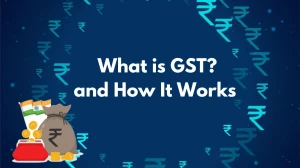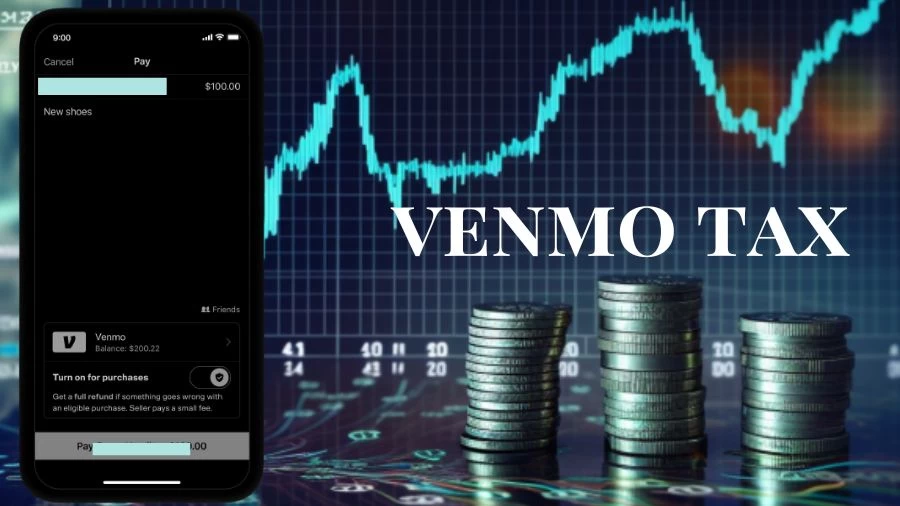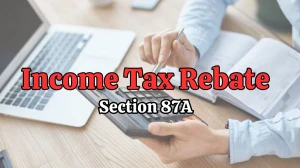
Venmo Tax, How Does Venmo Tax Work?
"Venmo Tax" refers to the tax implications associated with using Venmo, where personal transactions are usually non-taxable, but business transactions exceeding $600 in a year necessitate reporting via Form 1099-K to the IRS and potential taxation.
by Sangamithra
Updated Aug 29, 2023
On This Page
Venmo Tax
The taxation of Venmo transactions hinges on the purpose of the received payments, whether they are personal or related to business activities. While utilizing Venmo for sharing expenses among friends rarely triggers tax considerations, engaging in business transactions through the platform may necessitate addressing tax obligations. Notably, the IRS is in the process of enforcing stricter reporting standards for payment apps, including Venmo.
In cases where an individual accumulates over $600 in payments for goods and services within a year, Venmo is obliged to furnish both the user and the IRS with a comprehensive Form 1099-K detailing these transactions. While personal payments typically do not give rise to taxable income, payments associated with business activities must be reported and subjected to appropriate taxation.
Venmo's collection of tax information is intended to facilitate the preparation of tax-related documentation and may involve withholding a portion of income if requisite information is not provided. It is recommended to maintain accurate transaction records and seek advice from tax professionals for precise guidance.
How Does Venmo Tax Work?
Venmo taxation depends on whether you're using the platform for personal or business purposes. Here's how Venmo taxes work:
Personal Use:
If you're using Venmo for personal transactions like splitting bills, paying friends, or other non-business-related activities, you generally don't need to worry about taxes. These transactions are considered non-taxable.
Business Use:
If you're using Venmo for business purposes, such as collecting payments for goods or services you provide, the taxation rules come into play. The IRS is now tightening reporting requirements for payment apps like Venmo to better track business income. If you receive more than $600 in payments for goods and services through Venmo in a calendar year, the app operator is required to send you and the IRS a Form 1099-K, detailing the transactions. This is a threshold change; previously, it was triggered at $20,000 and 200 transactions.
Tax Information Collection:
Venmo collects tax information from users who are receiving payments for goods and services. This information is used to prepare Form 1099-K. You may need to provide your Social Security number or tax identification number. If you don't provide this information, Venmo might apply backup withholding, where a portion of your income is withheld for taxes (currently set at 24%). It's crucial to note that if you are subject to backup withholding, Venmo holds your funds until you provide your tax information or until the next monthly backup withholding date.
Taxable Payments:
For business accounts, all payments received are considered for business purposes, and you'll need to report them on your taxes. For personal accounts, not all payments are taxable. Transactions labeled as "goods and services" are typically subject to reporting and fees. If you occasionally accept personal payments through a business account, you might need to clarify the nature of those payments to the IRS.
Accessing Tax Information:
Venmo provides tax documents through the app. To access them,
- Open the Venmo app.
- Tap the "Settings" icon.
- Open the tax documents option.
- Select the relevant year to view applicable documents.
Other Tax Documents:
Venmo may also provide tax documents if you buy or sell cryptocurrency on the app. Cryptocurrency taxes are calculated similarly to other investments.
Switching Services:
Other payment services are also subject to IRS requirements. While some exceptions exist, you're still responsible for reporting your income even if it's not reported by a third-party app. It's essential to consult a tax professional or the IRS directly if you have specific questions about your tax situation.
How Much Does Venmo Tax?
Venmo employs a tax mechanism wherein funds in your Venmo or held balance address backup withholding obligations. If your tax ID is absent, 24% of received payments for goods and services are mandated to be sent to the IRS after your earnings surpass the $600 threshold in the current tax year. This process ensures compliance with tax regulations.
It's vital to provide your tax ID to avert this withholding and efficiently manage your financial transactions on the platform. Keep in mind that the tax percentage and regulations may change, so staying informed about Venmo's tax policies is advisable.
How to Avoid Venmo Tax?
To avoid potential tax issues related to Venmo and similar platforms, there are several steps you can take:
Understand Reporting Changes: Be aware of changes in tax reporting thresholds. As of the 2023 tax year, the threshold for receiving Form 1099-K has been lowered to $600 for a single transfer, down from a higher aggregate value. This means more individuals may receive this form.
Track Transactions: Keep track of your transactions made through peer-to-peer payment apps like Venmo. Understanding the source of your income is crucial for accurate reporting.
Plan for Tax Payments: If you anticipate owing taxes, consider setting aside money or making quarterly estimated tax payments. This proactive approach can help you avoid underpayment penalties.
Implement Record-Keeping: If you conduct business transactions through these apps, establish a clear bookkeeping or accounting system. Separating personal and business payments is important to avoid discrepancies in reported income.
Stay Organized: For teens who earn income through P2P payments, ensure they understand their tax obligations. Maintaining an organized record of income received and potential business expenses, along with relevant receipts, can simplify tax reporting.
Stay Informed: Stay up-to-date with IRS guidelines and potential changes to reporting thresholds. This will help you remain compliant and make informed financial decisions.
By following these steps, you can navigate tax obligations associated with peer-to-peer payment platforms like Venmo and ensure a smoother tax season.
How to Get Venmo Tax Documents?
To obtain your Venmo tax documents, follow these steps:
Electronic Delivery (Default for Qualifying Users):
Venmo automatically issues tax documents electronically to qualifying users. These documents can be accessed and downloaded through the Venmo app or from a desktop computer.
For Accounts Created Before July 22nd, 2022:
If your Venmo account was created before July 22, 2022, you may also receive physical tax documents via mail. To transition to electronic delivery, you can opt-in through the "Tax Documents" page in your Settings.
Accessing Tax Documents:
- To access your tax documents, follow these steps:
- In the Venmo app, go to the Settings menu and select "Tax Documents."
- On the web, click "Settings" in the sidebar, then navigate to "Tax Documents."
Availability of Documents:
If you don't see any tax documents available for download, it could be due to not qualifying for such documents from Venmo or if they haven't been issued yet. Check if you meet the criteria for receiving tax documents to understand whether you should expect them.
By following these guidelines, you can easily obtain your Venmo tax documents and stay informed about your tax-related information.
When Does Venmo Tax You?
Venmo enacts taxation measures when you accumulate $600 or more from the sale of goods and services through their platform without initially providing your tax information. In such cases, if you haven't furnished your tax details, Venmo is obligated to implement a backup withholding procedure. This entails withholding 24% of the payments you've received and transmitting this amount to the IRS.
This mechanism is in place to ensure compliance with tax regulations and proper tax collection. Therefore, the trigger for Venmo's tax withholding is reaching the $600 threshold for payments received from the sale of goods and services, provided your tax information has not been provided beforehand.
Venmo Tax Law
In 2022, a law (part of the American Rescue Plan Act) was enacted by the U.S. government. This law requires online payment platforms like Venmo, PayPal, Stripe, and Square to report business payments totaling $600 or more to the IRS through a 1099-K form.
However, this rule is specific to payments for "goods and services" and doesn't cover personal transactions among friends and family. Previously, the threshold for reporting was higher at $20,000 in income and 200 transactions. Importantly, this rule was initially meant for 2022 but was postponed to be effective from the 2023 tax year (starting January 1, 2023).
For freelancers and contractors paid through these platforms, it's essential to reconcile 1099-K forms with 1099-MISC forms from clients to avoid double taxation. According to IRS regulations, if a gig worker is paid via a third-party processor like Venmo, the payer doesn't need to issue a 1099-MISC; the payment platform handles it through a 1099-K.
Individuals should also ensure they're not taxed on personal Venmo transactions. To avoid fees and tax implications, toggle the "Turn on for purchases" button off. Accidentally sending money as a business purchase can lead to fees and potential taxes if it accumulates to $600 or more.
Does Venmo Inform IRS About Personal Transactions?
If your transactions involving the sale of goods or services through Venmo amount to a minimum of $600 within a given calendar year, a Form 1099-K will be issued to you at the start of the subsequent tax season. This form will also be sent to the IRS for record-keeping. Furnishing your tax information is advisable, as it prevents potential payment holds and the need for backup withholding.
Moreover, providing this information ensures accurate details on your tax documents. In cases where your sales do not reach the $600 threshold, you have the option to access your Venmo account statements for assistance with any other reporting responsibilities. Seeking guidance from a licensed tax advisor is also recommended for personalized advice.
Venmo Tax - FAQs
1. What determines if Venmo transactions are taxable?
Taxability depends on the purpose. Personal payments are usually non-taxable, while business transactions may trigger tax considerations.
2. What's the new IRS reporting rule for Venmo?
The 2023 rule mandates reporting of $600+ business payments via Form 1099-K, impacting platforms like Venmo.
3. Is Venmo taxation delayed to 2023?
Yes, the American Rescue Plan Act's tax rule, aimed for 2022, applies to tax year 2023 now.
4. How does Venmo handle tax info?
Venmo collects tax details to prepare Form 1099-K and might withhold income without tax info.
5. Can personal Venmo transactions be taxed?
Generally, personal payments aren't taxed; toggle off "Turn on for purchases" to avoid fees.




